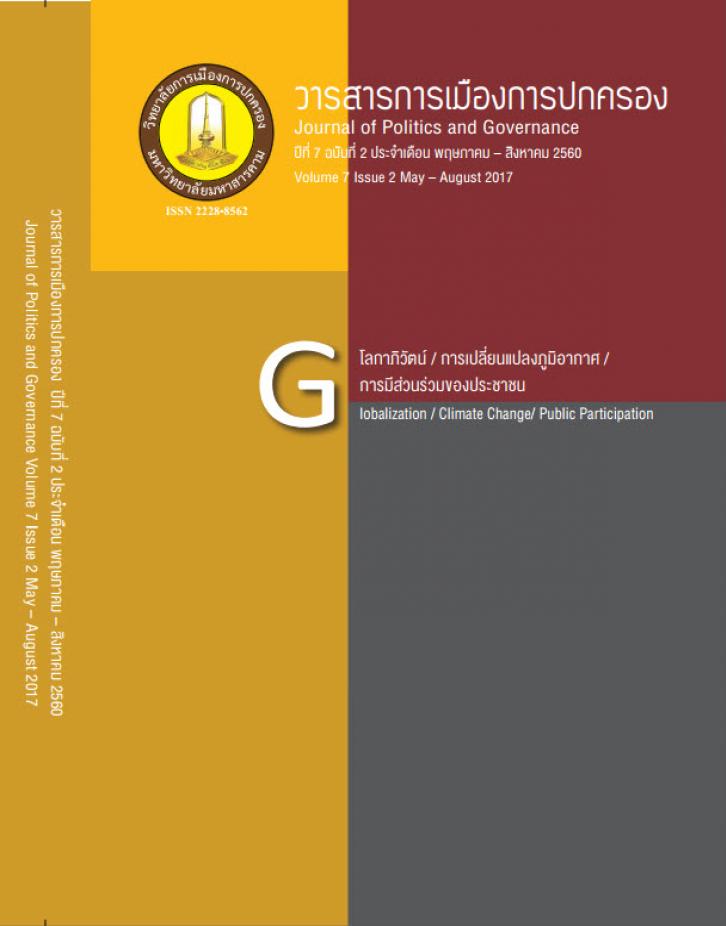Collaborative Infrastructure: ‘Self-Consciously’ Assessing State of Preparedness
Main Article Content
Abstract
Collaborative infrastructure that as much as requires cross-border agreement for two or more nation-states emerges as the new normal in the regional or global scene. Contemporary mood reflects a form of affirmative action where one nation-state’s developmental agenda indispensably or purposively take into account that of another developing nation-state. Self-consciously driven state of preparedness soon characterizes a country’s wherewithal to play host as it can play guest at every cycle of development or contractual arrangement in infrastructure. When all roads lead to 2015, making so-called ASEAN Economic Community inevitable, relevant state policies, new and existing, must blend with regional or global trends that put public interest on the part of government and return on investment on the part of the private sector at an even keel. Heads of host governments as in developing countries recipient of collaborative infrastructure arrangement must act as ‘social planners’ (Hirschman) for there must be certain hitherto underlying mechanisms, not to speak of laws, with characteristic ‘social-scientific regularities’. The lines on a map have become poor indicator of power (Stephenson, 2012) of an otherwise nominally ‘sovereign but impotent government’ (Agnew, 2009). This paper suggests of a new “orbit” around which nation-states gravitate effectively relinquishing the view of a ‘territorialized world’ in favor of a new mindset akin to the free movement of vessels in an ocean. The notion of collaborative infrastructure both propels and compels governments or nation-states to forge regional or international cooperation as the new modus operandi.
Article Details
References
Borroz, Nicholas and Hunter Martson. (2015). Asia’s Infrastructure Investment Battle. The Diplomat. 11 June 2015. http://thediplomat.com/2015/06/asias-infrastructure-investment-battle/
Donahue, John and Richard Zeckhauser. (2011). Collaborative Governance: Private Roles for Public Goals in Turbulent Times. New Jersey: Princeton University Press.
Greve, Carsten and Niels Ejersbo. 2005. Public-private partnerships for infrastructure in Denmark: from local to global partnering. In Hodge and Greve’s (eds.) book, The Challenge of Public-Private Partnerships – Learning from International Experience. Cheltenham, UK: Edward Elgar Publishing Limited. (pp. 257-268).
Henry, Nicholas. (2011). Federal Contracting: Government’s Dependency on Private Contractors. In Menzel and White’s (eds.) book, The State of Public Administration: Issues, Challenges, and Opportunities. New York: M.E. Sharpe.
Herkenrath, Mark and Volker Bornschier. (2013). Transnational Corporations in World Development: Still the Same Harmful Effects in an Increasingly Globalized World Economy. In Seligson and Passe’-Smith’s (eds.) book, Development and Underdevelopment: The Political Economy of Global Inequality. London: Lynne Rienner Publishers. (pp. 303-314).
Messner, Dirk. (2011). Regions in the World Economic Triangle. In Ahrens, Caspers & Weingarth’s (eds.) book, Good Governance in the 21st Century: Conflict, Institutional Change, and Development in the Era of Globalization. Chentelham, UK: Edward Elgar Publishing, Inc.
Nikkei Asian Review. (2015). Divided by history, bound by economic interests. (13 August 2015). http://asia.nikkei.com/magazine/20150813-THE-SCARS-OF-WORLD-WAR-ll/On-the-Cover/Divided-by-history-bound-by-economic-interests.
O’Hara, Philip. (2006). Growth and Development in the Global Political Economy: Social structures of accumulation and modes of regulation. London: Routledge
O’Hearn, Denis. (2013). The Irish Case of Dependency: An Exception to the Exception?. In Seligson and Passe’-Smith’s (eds.) book, Development and Underdevelopment: The Political Economy of Global Inequality. London: Lynne Rienner Publishers. (pp. 283-301).
Ono, Yokaku. (2015). Asian companies gain toeholds worldwide. Nikkei ASEAN Review (5 November 2015). http://asia.nikkei.com/magazine/20151105-ASEAN-INC.-S-GLOBAL-PUSH/On-the-Cover/ASEAN-companies-gain-toeholds-worldwide.
Pagunuran, Primer. (2015). Global Politics: Is It an Un-centralizing New World Order?. Public Policy Journal, University of the Philippines. Volumes XII & XIII (pp. 211-228).
Schultz, David. (2011). The Crisis of Public Administration Theory in Postglobal World. In Menzel and White’s (eds.) book, The State of Public Administration: Issues, Challenges, and Opportunities. New York: M.E. Sharpe.
Stoll, Peter-Tobias. (2011). Global Governance and the Private Sector. In Ahrens, Caspers, and Weingarth’s (eds.) book, Good Governance in the 21st Century: Conflict, Institutional Change, and Development in the Era of Globalization. Chentelham, UK: Edward Elgar Publishing, Inc.
Virmani, Arvind and Ashely J. Tellis. (2011). Tri-Polar World: India, China, and the United States in the 21st Century. Carnegie Endowment for International Peace. Washington, D.C. February 9, 2011 http://carnegieendowment.org/2011/02/09/tri-polar-world-india-china-and-united-states-in-21st-century/247d
Wignaraja, Ganeshan. (2015). Infrastructure key to unlocking pan-Asian integration. Asian Development Blog. (27 May 2015). http://blogs.adb.org/blog/infrastructure-key-unlocking-pan-asian-integration
Wilkins, Michael, Steven J Dreyer, Moritz Kraemer, Marco Sindao, and Devi Aurora. (2014). Global Infrastructure: How To Fill A $500 Billion Hole?. Standard and Poors Ratings Services. WWW.STANDARDANDPOORS.COM/ RATINGSDIRECT JANUARY 16, 2014 .
Wilson, Mar I., Aharon Kellerman, and Kenneth E. Corey. (2013). Global Information Society – Technology, Knowledge, and Mobility. Plymouth, UK: Rowman & Littlefield Publishers, Inc.
Wriston, Walter. (1992). How the Information Revolution is Transforming Our World: The Twilight of Sovereignty. New York: Charles Scribner’s Sons Macmillan Publishing Company.


